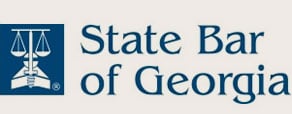If you are having financial difficulties that are making it difficult to keep your financial obligations, then you may want to seek financial relief by filing for bankruptcy. However, it's a good idea to know a little about the process of filing for bankruptcy in Tifton before doing so.
Filing For Bankruptcy in Tifton
The following are some of the basic things you should know about filing for bankruptcy:
- Before filing for bankruptcy, you will be required to undergo credit counseling. Once you've completed credit counseling and filed for bankruptcy, you will then have to complete a financial management instructional course.
- You'll need to gather paperwork in order to file for bankruptcy. Some of the information that will be required include an itemized list of your income sources, your monthly living expenses, your secured debts, your unsecured debts, your major financial transactions of the past two years, any deeds for real estate you own, car titles, loan documents and your tax returns from the past two years.
- Once you have all of the paperwork you need, you'll be required to file a two-page petition along with a number of other forms at your Georgia district bankruptcy court. If you are not completely honest about your current or past financial status and transactions, you could risk having your petition rejected.
- Once you file for bankruptcy, the courts will analyze your income and expenses over the six month period leading to your filing to determine if you should file for Chapter 7 bankruptcy or Chapter 13 bankruptcy. If you make below the income mean in Georgia, you can file for Chapter 7, which will wipe out unsecured debts, such as medical bills and credit card debts. However, you may be required to sell off nonexempt property in order to pay back your creditors. If you earn above the mean, you'll need to file for Chapter 13 bankruptcy, which will involve setting up a repayment plan in order to help settle your debts.
- If you file for Chapter 13 bankruptcy, you'll also be required to submit a proposed repayment plan. Priority claims, such as back child support and taxes, must be paid in full. However, unsecured debts, like medical bills and credit card bills, can be paid in part. You may be able to pay off unsecured debts for as little as ten percent of what you owe depending on the judgement.
- The fee for filing for Chapter 7 bankruptcy is $306. Although the court will not waive the fee, they can set up a payment installment plan so that you do not have to pay it all at once. The fee for a Chapter 13 bankruptcy filing is $281 and also cannot be waived.
- After you've filed for bankruptcy, an automatic stay will go into effect. This prevents creditors from being able to make direct contact with you or trying to stake a claim on your property, thereby stopping foreclosure proceedings.
- Once you've filed, the court will take legal control of your debts as well as non-exempt property. A trustee will be appointed to review your paperwork, assets and exemptions that you are claiming. They will be in charge of making sure your creditors are paid as much as possible.
Filing for bankruptcy is no simple task, as you can see. If you are thinking about filing for bankruptcy, you should consult a bankruptcy attorney first to ensure that you know what your options are. A bankruptcy attorney will also be able to help guide throughout the bankruptcy filing process.







